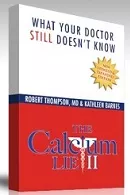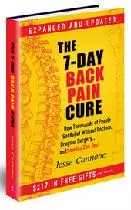|
Benefits of Inversion Table Use Found by Celebrities and a Car Company
Benefits of inversion table use have been discovered by many including celebrities and car companies. Celebrities are always looking for easy ways to stay healthy, pain- free and beautiful... and use inversion tables on a regular basis. They recognize the benefits of inversion table therapy.
Here are just a handful of celebrities using inversion tables!
- Eva Mendes (right) believes inverting at a shallow angle for twenty minutes keeps her complexion beautiful.
- Martha Stewart
- Ozzy Osbourne
- Lance Armstrong
- Da Vinci Code author Dan Brown inverts every day to help increase mental clarity and reduce writers block
- Matt Lauer
- Regis Philbin
- Gene Simmons
- David Duchovny
- Rosie O'Donnell
The benefits of inversion table use have also been seen on many TV shows such as:
- Good Morning America
- The Today Show
- America's Got Talent
- The Ellen Degeneres Show
- Real Sports with Bryant Gumbel
- The Soup on E!
- The View
- Work Out on Bravo
You Can Get the Benefits of Inversion Table Use and You Don't Even Have To Hang Upside Down!
A few years ago, Volvo (the car manufacturer) told their employees that if they didn't use an Inversion Table everyday (on company time I might add) ... the employee would have to pay the majority of their own health benefits.
The first year after this strategy was implemented... the hours of work missed within Volvo dropped 55%.
And it gets even better.
Not only did the hours of missed work drop by 55%... the employees did NOT fully invert.
They only inverted themselves a tiny 15 degrees of incline - little enough to avoid the feeling of blood rushing to your head that bothers some people.
We've been preaching this for years and it's finally catching on.
You absolutely, 100% do NOT have to be completely upside down in order to get relief using an inversion table.
We recommend starting at a comfortable 30% inversion...followed by a 60% inversion... and finally fully inverted...
IF and only IF you're ready to do so.
Benefits of Inversion Table Therapy Shown by Medical Studies
If you would like to do more research on the benefits of inversion table use, you could look up some of the references below:
- Sheffield, F.: Adaptation of Tilt Table for Lumbar Traction. Arch Phys Med Rehabil 45: 469-472, 1964. 175 patients who were unable to work due to back pain were treated. After eight inversion treatments, 155 patients were able to return to their jobs full time. Study concluded that the main basis for improvement was the stretching of paraspinal vertebral muscles and ligaments and possibly the widening of intravertebral discs.
The study found significant improvements in a variety of diagnosis including spondylolisthesis, herniated discs, lumbar osteoarthritis with sciatica, and coccygodynia. Patient experienced traction in a modified hip flexed position.
It is worth noting that previous to his use of inversion therapy, Dr. Sheffield regularly used mechanical traction with weights and pulleys. He considered inverted traction much more effective than mechanical traction.
- Nosse, L.: Inverted Spinal Traction. Arch Phys Med Rehabil 59: 367-370, Aug 78.
Study found emg activity (an indicator of muscle pain) declined 35% within the first 10 seconds of inversion. Study found that inversion increases the spinal length. Study concluded there is a correlation between a reduction in emg activity and an increase in spinal length.
- Gianakopoulos, G, et al: Inversion Devices: Their Role in Producing Lumbar Distraction. Arch Phys Med Rehabil 66: 100-102, Feb 85.
Study found all subjects experienced intravertebral separation in the lower lumbar vertebrae. Study concluded that although mechanical traction has been used for centuries, only gravity assisted traction (inversion) offers an effective means of achieving pelvic traction at home.
- Ballantyne, Byron, et al: The Effects of Inversion Traction on Spinal Column Configuration, Heart Rate, Blood Pressure, and Perceived Discomfort. Jour of Orthopedic Sports Phys Ther. 254-260, Mar 86.
Study concluded that inversion can be an effective means of spinal traction. Subjects inverting in the hip flexed position experienced greater separation between the lumbar vertebrae.
- Kane, M, et al: Effects of Gravity-facilitated Traction on Intravertebral Dimensions of the Lumbar Spine. Jour of Orthopedic and Sports Phys Ther. 281-288, Mar 85.
Study found gravity-facilitated traction (inversion), produces significant intravertebral separation in lumbar spine. Study concluded gravity facilitated traction may be an effective modality in the relief of low back pain.
- Goldman, R, et al: The Effects of Oscillating Inversion on Systemic Blood Pressure, Pulse, Intraocular Pressure, and Central Retinal Arterial Pressure. The Physician and Sports Medicine. 13: 93-96, Mar 85.
Study concluded that full inversion using oscillation procedure presents no risk to normotensive healthy subjects.
- Dimberg, L, et al: Effects of gravity-facilitated traction of the lumbar spine in persons with chronic low back pain at the workplace.
116 people were enrolled in the randomized controlled trial which lasted for 12 months. A randomized controlled trial with two training groups and one control group was conducted to asses the effect of gravity inversion on pain level and absenteeism due to LBP. Average age = 44 years. 77% men
Group 1: used inversion for 10 minutes 1/day
Group 2: used inversion for 10 minutes 2/day
Group 3: control group
Results after 12 months of training program:
1. The employees in Group 1 and 2 decreased sick days due to back pain by 33%.
2. Average sick days to due back pain fell by 8 days per individual in the treated group.
3. "Inversion is an efficient and cheap way to improve employee health and possibly reduce sick day costs to the employer."
- Nachemson, Alf, et al: Intravital Dynamic Pressure Measurements in Lumbar Discs. 1970.
Study measured internal disc pressure (in the 3rd lumbar disc) through a range of activities, including standing, sitting, bending and vertical and supine traction. The study suggests that a traction load of 60% body weight is sufficient to reduce the residual pressure of 25% standing body weight to zero.
Read some more
benefits of inversion table use
found by ordinary people - almost anyone can benefit.
Product pages:
Sales page for HBI Premium Inversion Table
|
Keep up to date with
valuable insights into
pain management via
a healthy lifestyle.
Receive the monthly
Natural Pain Relief
Guide Newsletter.
News articles, health
tips, specials, freebies.
Enter your email and name
in the form to the right.
|
|
|
Check this out!
FREE BOOK
- help for your back, neck or sciatic pain.
NEWLY REVISED!
Great Special
Get it Now!
Finally - Get A Good Night's Sleep
|









New! Comments
Have your say about what you just read! Leave me a comment in the box below.